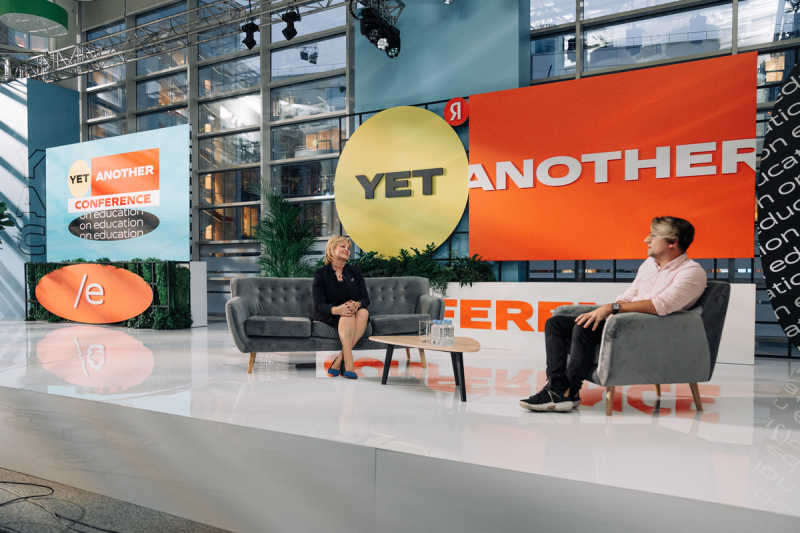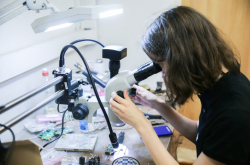Math in the era of Google
Though algebra and geometry are compulsory subjects at school, the internet is replete with questions on what the Pythagorean theorem or discriminants have to do with real life. School students often wonder why they should learn different branches of mathematics when almost everything is googleable. However, blind faith in ready-made solutions is a no good, and here’s why:
“The abundance of information available today plays against mathematics. Many people ask themselves: “Why should I learn and memorize all of this when there are so many handy tools?” or “Why do I need to learn the multiplication table if I always have a calculator on me?” Yet we can only trust these technologies because we know how they work. Otherwise, could we truly rely on a tool that seems foreign to us?” wondered Elena Mikhailova, PhD, the head of ITMO’s Higher School of Digital Culture.
Students are also not big fans of math because it’s overflowing with theory. ITMO lecturers suggest several ways on how to teach them to love math and acquire future-proof skills.
First and foremost, students with different majors should have different curricula. Thus, soon-to-be experts in data analysis can get more out of courses on the methods of optimization, linear algebra, and the theory of neural networks, whereas cybersecurity specialists need such math branches as elliptic curves and integer factorization and robotics majors – differential equations.
“Each specialization should come with an individual learning track. We shouldn’t do math for the sake of math. The lecture format that we’re used to is changing, too. Even now, lecturers can’t simply come into a classroom and casually throw in some theorems, definitions, and proofs. They need to make sure that students understand where they come from by building a dialogue and trying to get to the bottom of the problem together,” noted Anton Boitsev, PhD, an associate professor at ITMO’s Higher School of Digital Culture.

Elena Mikhailova and Anton Boitsev at Yet another Conference on Education. Photo by Yandex’s press office
What’s more, education programs should focus more on applied tasks. With loads of online services and information systems out there, specialists and general users can’t do without digital skills. In other words, if they want to develop such systems or simply use them, they will need to know how to collect, process, and analyze data. That’s why the core disciplines of digital skills training are linear algebra (for data structuring), probability theory, statistics, and mathematical analysis.
Aside from a practice-oriented approach, training should adopt practices from both academia and industry.
“Universities are often accused of being overly theory-based, which makes students believe that there’s no better place to study IT than specialized companies. But in fact, educators from IT companies can rarely boast an efficient methodological framework and expertise in teaching the field’s fundamentals. Hence, the future belongs to the synergy of universities and IT companies,” said Elena Mikhailova.
And last but not least, educators shouldn’t be afraid to deploy a variety of formats to promote math such as short-term courses, hackathons, gamification, and storytelling based on mathematical data.
Read also:
How to Find Your Path in IT and Land Your First Job
Why Supporting Women in Science and Business Is Important and How to Do It Right
How to attract more women into STEM
Mathematics is one of the fourth fields of studies in STEM (science, technology, engineering, and mathematics) that is often viewed as masculine. A UNESCO study showed that women make up 40% of graduates in computer science and only 28% of those in engineering. Gender stereotypes are prevalent at different levels, from school subjects to career choices. Because of them, women feel insecure and often hold themselves back when picking a tech career, even if they have high GPAs in STEM subjects.

Olga Savinskaya and Elena Bubnova at Yet another Conference on Credit. Photo by Yandex’s press office
Women can’t fight to improve gender equality alone, they need parents and educators to help them create a friendly and safe environment where women can try themselves in different roles, both education- and job-wise. Here’s how:
-
Arrange additional classes and courses and encourage young women to join them. As noted by Nica Kostenko, the dean of the Department of Sociology at the European University at St. Petersburg, such activities can help better explain what women can contribute to STEM fields, for instance, solving problems in social and humanitarian fields. This applies especially to people who come from comprehensive schools and regions;
-
Introduce students to STEM role models. CPO of Yandex Search Elena Bubnova, for instance, shared that her first C++ teacher showed her that women can thrive in IT and inspired her to opt for her current career;
-
Pay attention to women’s successes, especially if they’ve solved a complex issue or won a competition. Hearing about someone else’s achievements can motivate and empower women on their path;
-
Establish women’s communities for both students and teachers. As pointed out by Olga Savinskaya, the Academic Director of the Doctoral School of Sociology at the Higher School of Economics, these are the places where women can meet people who share their interests, get support, take part in contests, and discuss different problems.
Recordings of all the talks at Yet another Conference on Education can be found here (in Russian).





